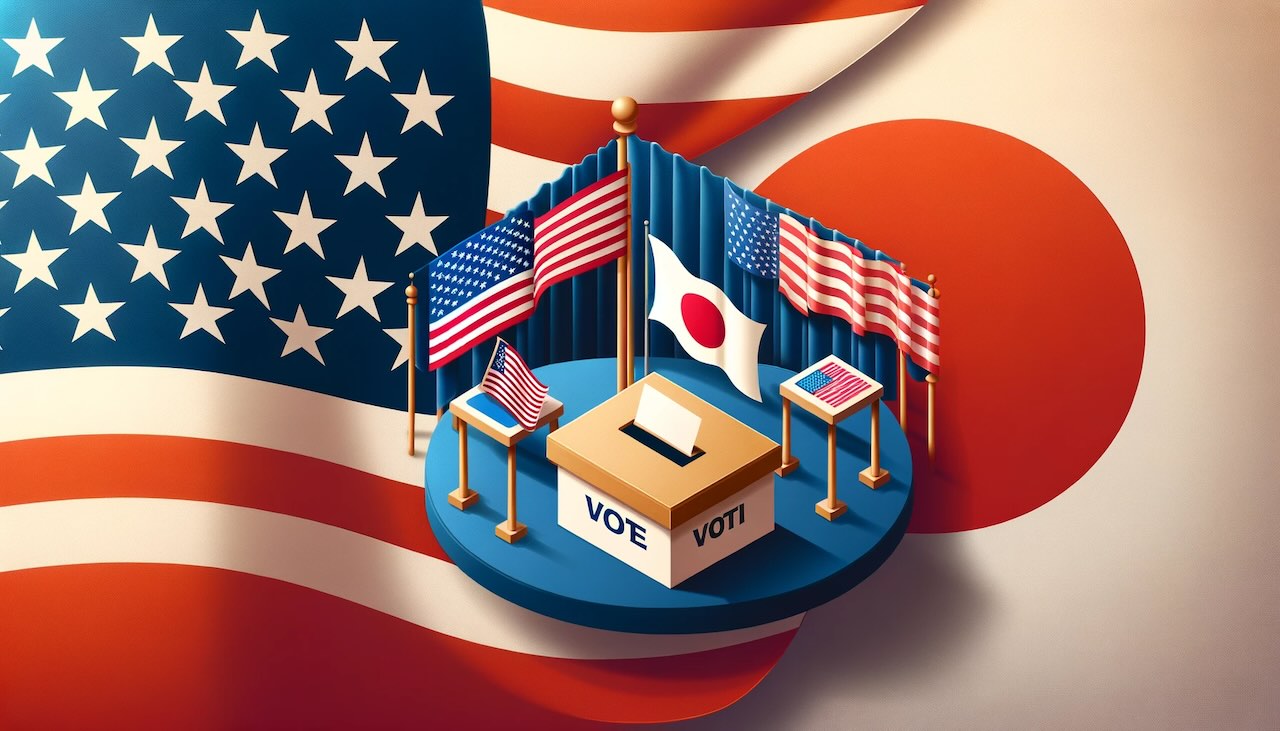Why do voters in the United States appear more politically active than those in Japan?
Both countries are modern democracies with free elections, yet their levels of civic participation differ greatly. Voter turnout in Japan consistently lags behind that of the U.S., and political engagement—particularly among young people—remains relatively low. This raises a fundamental question: what cultural and systemic forces shape how citizens engage with democracy?
As someone deeply familiar with Japanese culture and values, I’ve long found this contrast fascinating. Let’s explore the reasons behind these differences—and what Japan might learn from the American experience.
What Drives Higher Voter Engagement in the United States?
1. A Strong Civic Identity Rooted in Individual Rights
From the American Revolution to the Civil Rights Movement, the U.S. has framed democracy as something to be fought for and protected. This historical backdrop instills a belief that voting is not just a right—it’s a duty tied to the preservation of freedom and personal agency.
2. Early Emphasis on Civic Education
In American schools, civics classes are common. Students learn not only how the government works, but why their participation matters. This foundation builds a sense of political responsibility from a young age.
3. Dynamic Media Coverage
From televised debates to real-time social media commentary, U.S. elections are covered in minute detail. The media plays an outsized role in generating public interest, framing issues, and sparking debate.
4. Participatory Electoral Systems
The U.S. electoral process includes primaries, caucuses, town halls, and ballot initiatives—offering multiple points of entry for citizens to influence outcomes beyond simply casting a vote.
Why Is Voter Participation Lower in Japan?
1. Cultural Preference for Harmony Over Confrontation
Japanese society values wa (和)—social harmony and group consensus. Open political debate, especially in public or among friends, can feel uncomfortable or inappropriate. This aversion to confrontation often translates into political disengagement.
2. Widespread Political Apathy and Cynicism
Many Japanese citizens view politics as distant and unchanging. A common sentiment is: “Nothing will change anyway.” This skepticism, combined with limited trust in politicians, discourages turnout.
3. Limited Channels for Public Input
Japan lacks many of the direct participation mechanisms found in the U.S., such as primaries. Voters have fewer opportunities to shape the candidate field or engage in political action outside of general elections.
4. Less Engaging Political Media
Japanese media tends to report on politics in a detached, factual tone, often avoiding sharp analysis or confrontation. This results in less public excitement or urgency around elections.
Bridging the Gap: How Japan Could Boost Political Engagement
While Japan’s culture and systems are unique, there are still effective strategies that could encourage more active participation:
1. Revamp Political Education
Integrate age-appropriate civic lessons into school curricula, focusing on how political decisions impact daily life. Emphasize the value of democratic participation—not just the mechanics of voting.
2. Encourage Critical Media Reporting
Media outlets should go beyond event coverage and offer in-depth analysis, investigative journalism, and diverse viewpoints. This can help citizens connect more personally to the stakes of each election.
3. Reform Electoral Structures
Introducing open primaries, simplifying campaign rules, and expanding early voting options could make the electoral process more inclusive and accessible.
4. Engage the Next Generation
Use digital platforms and social media to spark political interest among youth. Host mock elections, student forums, and other interactive experiences that make politics feel relevant and approachable.
Conclusion: Rethinking Civic Engagement in Japan
The difference in voter turnout between Japan and the U.S. isn’t just about rules or logistics—it’s about how people see themselves in relation to their government.
In the U.S., voting is part of a long-standing civic narrative about freedom and personal voice. In Japan, a more reserved and skeptical approach to politics prevails. But this can change.
By fostering civic awareness, enhancing media dialogue, and reforming systems to invite more public input, Japan can build a more participatory democracy. And while the American model offers inspiration, any solution must be adapted to Japan’s cultural context.
The goal isn’t to mimic—but to evolve: to create a version of democracy that feels meaningful, accessible, and empowering to all.





















